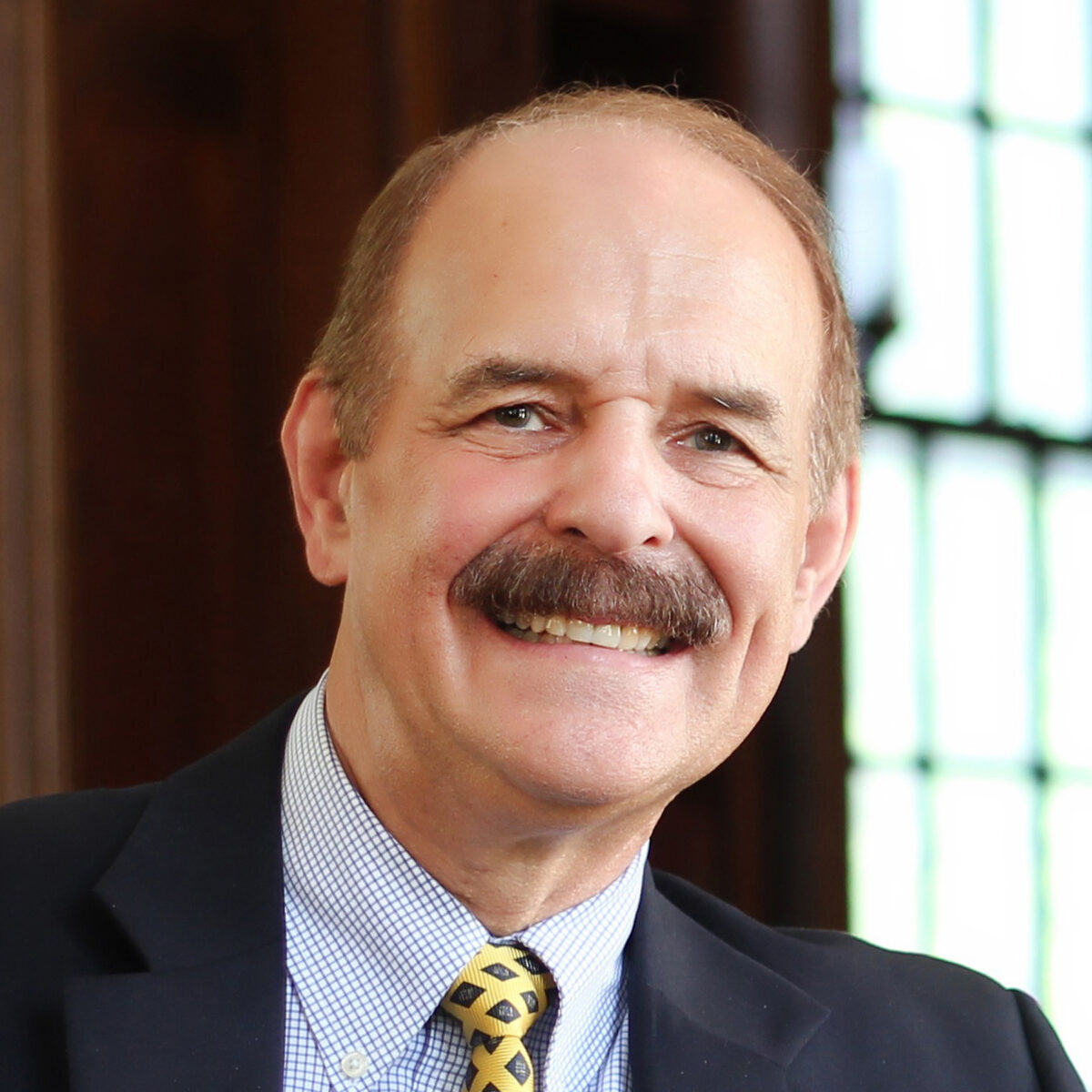In the Beginning, God…
 Reflections on a Loving, Designing, Self-Disclosing Maker
Reflections on a Loving, Designing, Self-Disclosing Maker
Dr. Dennis Hollinger
The following brief excerpt from Dr. Dennis Hollinger’s new book Creation and Christian Ethics highlights the book’s premise that God’s nature is disclosed in the creation and that, as part and parcel of that, ethical paradigms are revealed. He explains why he wrote the book and explores its varied themes in a brief Q & A:
What prompted you to write this volume, and why now?
Evangelicals have largely ignored creation other than debating how God created and when God created. Some Christians have rejected the notion that creation has any relevance to some of the controversial issues of our day. This work seeks to mine the creation story and creation texts for theological and ethical paradigms that can address a wide range of contemporary issues such as money, sex, power, racism, creation care, work, AI, and justice.
In this excerpt you highlight the importance of the “unseen dimensions” of God’s creation: “And in those unseen dimensions (and in some of the seen dimensions), which God has designed, are clear guidelines to enable humans to love God and others and to flourish as God’s creatures.” Can you give an example of one such unseen dimension and how it lends such guidance?
Most of the paradigms I draw from the creation story are “unseen,” such as the goodness of creation (with relevance for how one views money, sex and power, which are good gifts of God); dignity for all humans and all of human life stemming from humans having been created in God’s image (thus applying to racism, abortion, and medical assistance in dying); caring for God’s good and beautiful creation; our having been created for relationship and for work, and our having been created finite and yet as whole beings. By “seen dimensions” I’m referring to the material part of creation, such as nature, animals, and humans.
You mention creation reveals that God is a “speaking God,” in contrast to Richard Dawkins’s nihilistic description of the universe. How ought this understanding, both of God and creation, inform our ethical obligations?
God’s creational designs are revealed to us through the incarnate word, Christ, and the written word, the Bible. This revelation, like creation itself, flows from Divine love, which then serves as the ultimate ethical norm for human beings.
Excerpt:
“In the beginning God created the heavens and the earth” (Gen. 1:1). This is one of the simplest yet most profound statements of Holy Scripture. All of reality begins with God, and from the rest of Scripture we see that this God is clearly the triune God: Father, Son, and Holy Spirit. God creates from nothing—ex nihilo, as theologians and philosophers term it—therefore, all that exists comes ultimately from the hand of God, either by direct creation or providential guiding. “Beginnings and endings reveal a lot about the scope and significance of a story. So it matters that the story of the Bible begins and ends with creation.” Moreover, “the Bible begins by centering us on the only one who in his very being is life and love, the uncreated one who is the source of all goodness.”[1]
God designed the world, and in that design are contours and directions for how humans, the apex of divine creation, should live and orient their lives. The material world comes from the hand of God, and so does the immaterial world—hence, parts seen and unseen. And in those unseen dimensions (and in some of the seen dimensions), which God has designed, are clear guidelines to enable humans to love God and others and to flourish as God’s creatures. We are not made to live unto ourselves or by ourselves but to live unto God and in relation to his creatures, including fellow humans made in his image and the rest of nature, for which we are called to care. But all of the cosmos and all of life in this world starts with the Creator. As a eucharistic prayer from the Book of Common Prayer beautifully describes it, “Holy and Gracious Father: in your infinite love you have made us for yourself.”[2] And as his creatures, we find ourselves and our pathway to true and integral living in our Creator.
This creation narrative and worldview stands in stark contrast to portrayals such as that by Richard Dawkins, one of the well-known secular scientists of the modern world. He states, “The universe we observe has precisely the properties we should expect if there is, at bottom, no design, no purpose, no evil and no good, nothing but blind, pitiless indifference. . .. DNA neither knows nor cares. DNA just is. And we dance to its music.”[3] The biblical narrative, though, portrays not a story of random, uncaring indifference but one of design and purpose. Moreover, the creation story shows a speaking God who reveals himself in both actions and words and does so as a reflection of love.
[1] Douglas J. Moo and Jonathan A. Moo, Creation Care: A Biblical Theology of the Natural World, Biblical Theology for Life (Grand Rapids: Zondervan, 2018), 45, 46.
[2] The Book of Common Prayer (New York: Seabury, 1979), 362.
[3] Richard Dawkins, River out of Eden: A Darwinian View of Life, Science Masters Series (London: Basic Books, 1995), 133.
 Dr. Dennis Hollinger is Gordon-Conwell president emeritus and senior distinguished professor of Christian ethics. His book Creation and Christian Ethics: Understanding God’s Designs for Humanity and the World (Baker Academic, 2023) came out last fall. For over 40 years, he has been speaking, teaching, and writing on topics in ethics, including bioethics and human sexuality. He is the author of several books and currently lives in Charlotte, North Carolina.
Dr. Dennis Hollinger is Gordon-Conwell president emeritus and senior distinguished professor of Christian ethics. His book Creation and Christian Ethics: Understanding God’s Designs for Humanity and the World (Baker Academic, 2023) came out last fall. For over 40 years, he has been speaking, teaching, and writing on topics in ethics, including bioethics and human sexuality. He is the author of several books and currently lives in Charlotte, North Carolina.